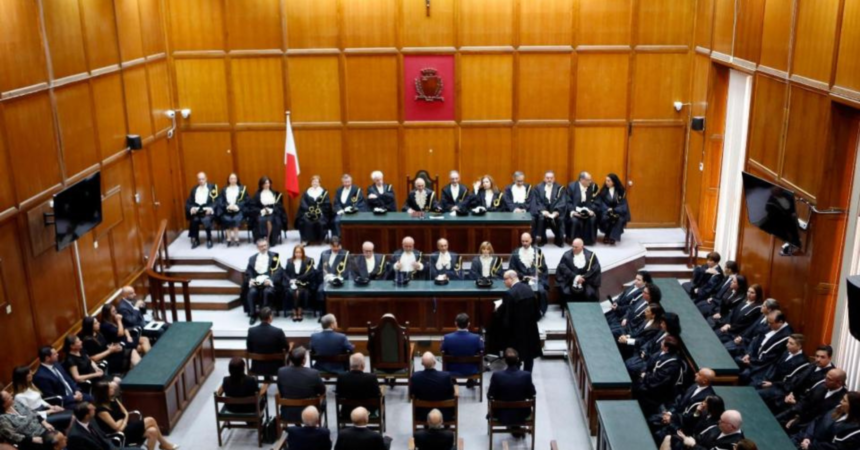The Council of Europe’s Group of States against Corruption (GRECO) is demanding some form of transparency from the Commission for the Administration of Justice but the government appears to be stalling on taking any kind of step to improve the transparency of complaints processes in the judiciary.
The Council of Europe’s anti-corruption body on Tuesday took the government and the judicial watchdog headed by the President of the Republic to task for failing to heed its recommendation “that the system of judicial accountability be significantly strengthened, notably by extending the range of disciplinary sanctions to ensure better proportionality and by improving the transparency of complaints processes”.
GRECO’s rapporteurs said they “regretted that no steps had been taken to improve the transparency of complaints processes in the judiciary” since the previous round of evaluations seven years ago.
This time around, the rapporteurs complained that the Maltese authorities have provided no new information on the matter.
Malta’s only answer to their concerns was that no more than that “the government will approach the Commission for the Administration of Justice in order to implement the recommendation and enhance transparency in the complaints processes.
GRECO said it took note of the Maltese authorities’ intention to take steps to improve the transparency of the complaints processes.
But, it added, “The actual situation remains the same as in the previous compliance report as no further steps have been taken, e.g. no published statistics of complaints received, types of breaches and sanctions, etc.”
Traditionally secretive about its workings and decisions, the CAJ is chaired by the President and the deputy chair is the Chief Justice.
The other members are the Attorney General, two members elected from among the Superior Court Judges, two members elected from the Magistrates of the Inferior Courts; one member appointed by the Prime Minister (Pawlu Lia), one member appointed by the Leader of the Opposition, and the President of the Chamber of Advocates.
MPs failed for seven years to find ways to supervise and enforce themselves
GRECO has also said it is “very disappointing” that Maltese MPs have for the last seven years failed to fully comply with its recommendations to impose “appropriate supervision and enforcement systems” on themselves.
The Council of Europe’s anti-corruption body has underscored the fact that a revised Code of Ethics governing MPs’ behaviour is still lacking in its Second Addendum to its Second Compliance Report on Malta
While it welcomes the establishment of the Commissioner for Standards, GRECO’s rapporteurs on Malta underscored that “appropriate supervision and enforcement systems of the rules on declaration of assets, interests and outside activities by means of effective, proportionate and dissuasive sanctions are also still lacking.”
The current code of ethics had been published then-Speaker of the House of Representatives Lawrence Gonzi back in 1995. An update to the code had been prepared by former Commissioner for Standards in Public Life George Hyzler in 2020 and that is awaiting implementation.
GRECO had recommended a thorough review to provide more subject matter coverage, consistency and clarity, as well as guidance.
“Currently, no tangible progress has been achieved and the Code of Ethics unfortunately remains the same now as it was at the adoption of the Evaluation Report, more than seven years ago.”
Scathingly, GRECO’s rapporteurs on Malta – one from the United States (parliament) and another from Bosnia Herzegovina (the judiciary) have cast doubt on any certainty that the new Parliament elected in March 2022 will continue to pursue the matter since it “will most certainly have its own agenda”.
“There is no certainty that it will resume this issue. Therefore, GRECO can no longer consider the previously ongoing work sufficient to conclude that the recommendation has been complied with, even partly, at this stage.”
The Maltese authorities have told GRECO that last year’s dissolution of the House of Representatives and the electoral process “affected the work in progress regarding the review of the Code of Ethics for parliamentarians”.
They have reported that work on the Code will be resumed shortly alongside regular parliamentary work.













